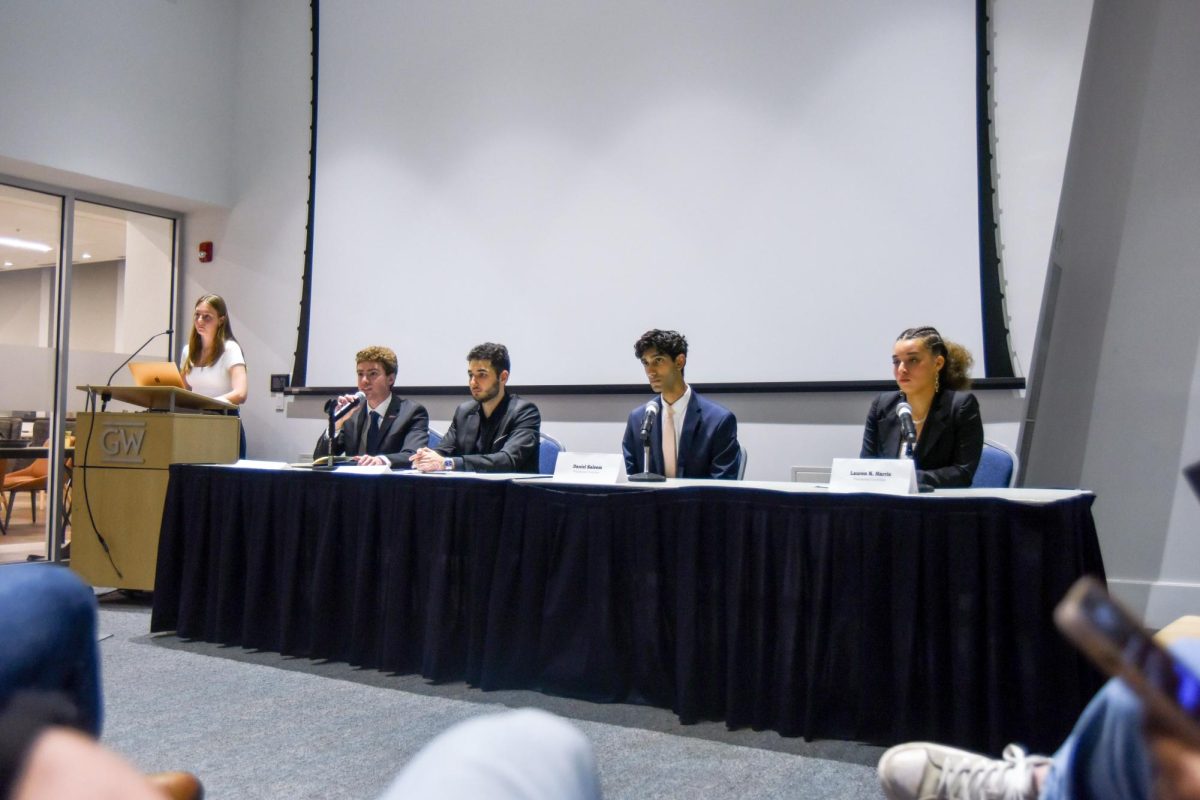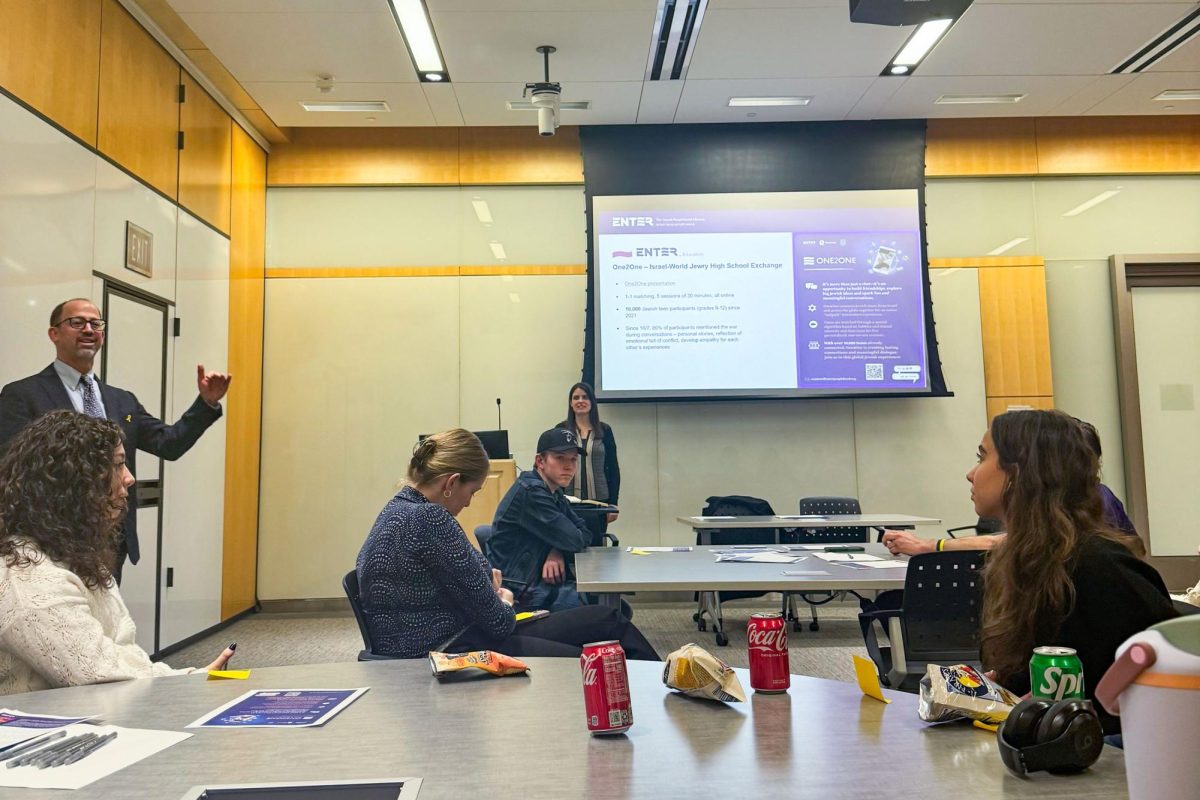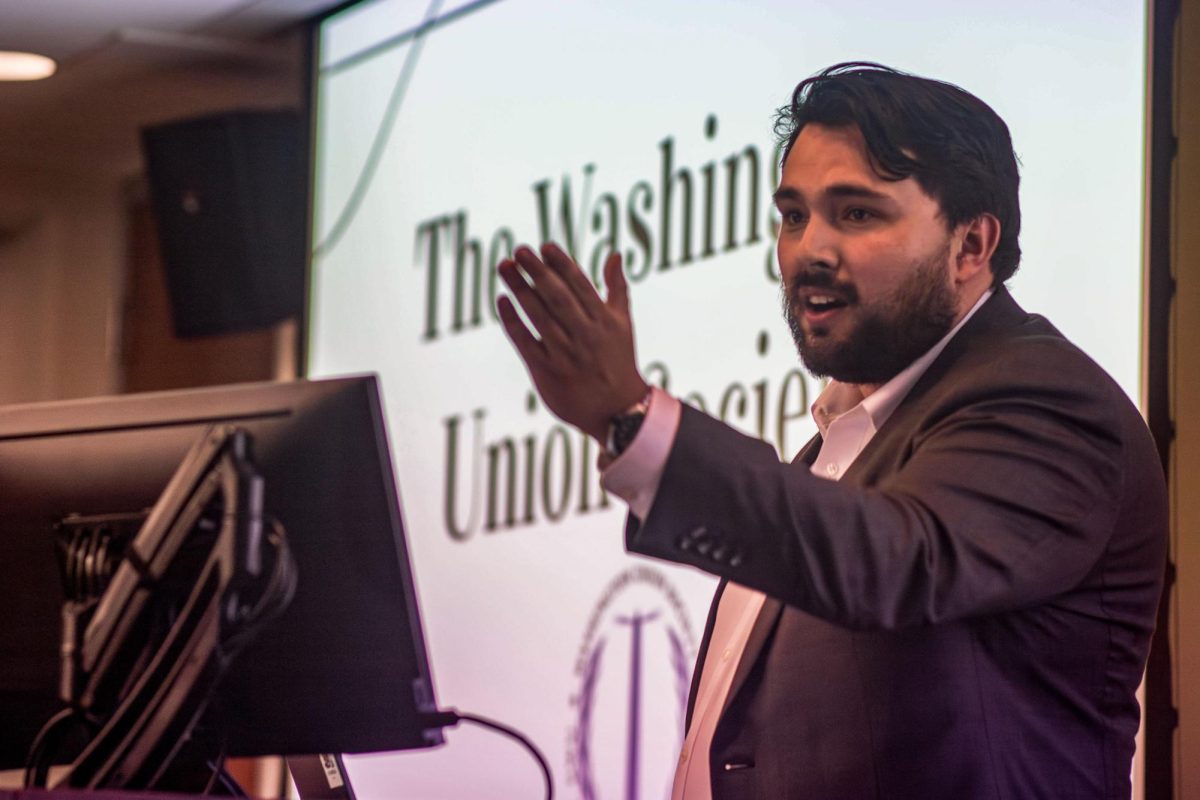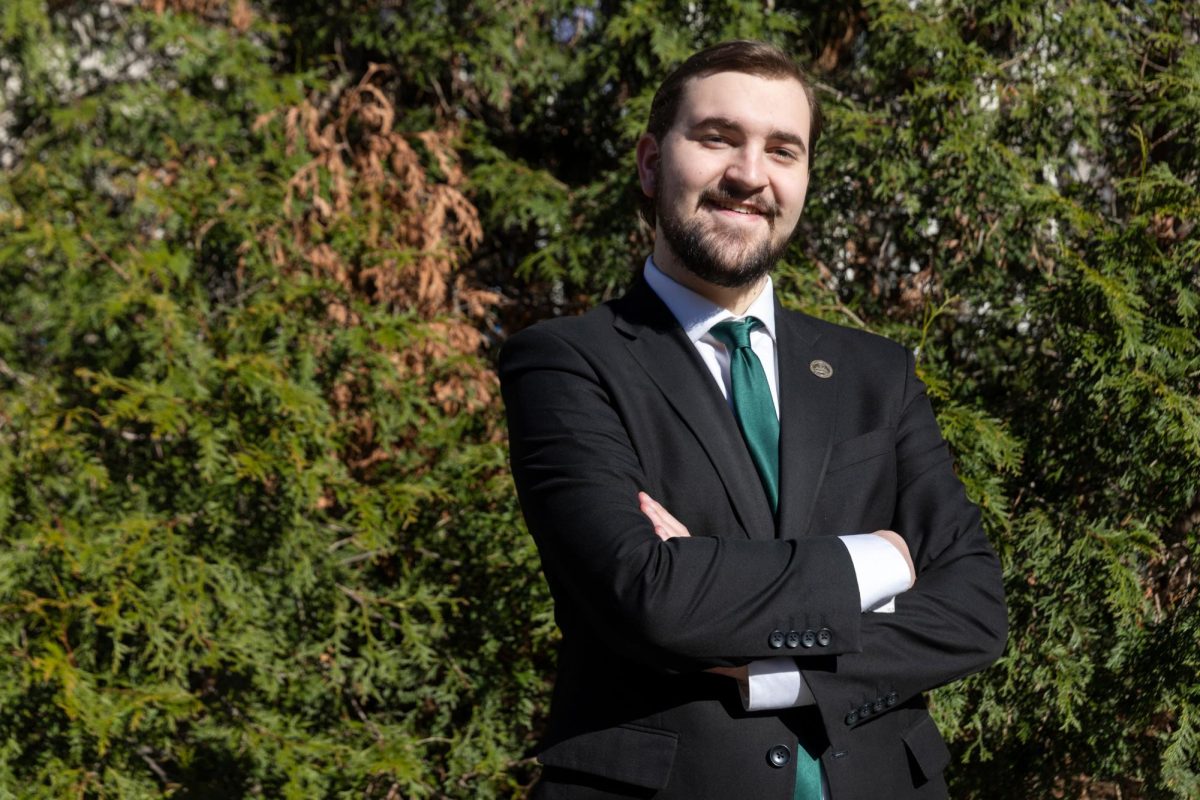Student Government Association candidates defended their platforms to a crowd of more than 100 students in a debate Tuesday night.
Vice presidential and presidential candidates spoke on an array of issues, including how to advocate for students’ free speech surrounding the war in Gaza and the suspension of Students for Justice in Palestine and combatting sexism faced by female members of the SGA from fellow members of the body. Four presidential and two vice presidential candidates participated in the debate spanning over two hours in the University Student Center presentation space in anticipation of the upcoming SGA election this Thursday and Friday.
Hannah Marr, The Hatchet’s student government editor, moderated the debate. Here are the highlights:
Vice Presidential Debate
Two vice presidential candidates, junior Aly McCormick and sophomore SGA Sen. Ethan Lynne (CCAS-U), discussed gender-based inequalities women face in their positions in the SGA, collaboration with administration to improve dining and the prevention of infighting within the SGA. McCormick said she had experienced “unbecoming behavior” while interacting with other members in the SGA about her gender and sexuality and would report this type of behavior to the Student Rights and Responsibilities and the Title IX office at GW if elected.
“It was very disappointing to see people in these positions downgrade and speak sexually about me,” McCormick said. “It’s disappointing, harmful, hurtful and to all the women who have been spoken to like this in the SGA at large, I see you, I hear you and this behavior is unacceptable.”
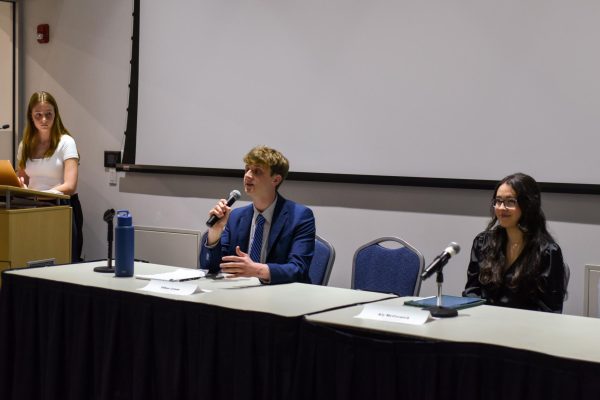
Both McCormick and Lynne said they plan to enact a zero tolerance policy for any form of sexism within the SGA and will file reports with SRR for cases of sexual misconduct. Lynne said if elected, he will appoint a diverse staff with women on every level to correct the “struggling culture” women face in the SGA. Women in the SGA who have experienced sexism from their fellow members said a more diverse governing body on the SGA would better represent the school and prevent future sexual misconduct.
Neither McCormick nor Lynne said they registered for on-campus housing or a University meal plan for the upcoming academic year, but said they promise to be “on the ground” and “present” with students living on campus. Lynne said he will increase communication with campus dining officials to improve food options and voice students’ concerns about dining operation hours even if he is not on the dining plan next year.
“Even though I am moving off campus, it’s not like you’re not gonna see me,” Lynne said. “As vice president, I pledge to eat at a GW dining facility at least once every single day.”
As a transfer student from American University, McCormick said she was not offered on-campus housing at GW upon her acceptance to the University and will be living off campus without a dining plan. McCormick said she plans to set up times to speak with the administration and students about dining hall food options and hours of operation.
Presidential Debate
Four presidential candidates, junior Nicky Beruashvili, sophomore SGA Sen. Ethan Fitzgerald (CCAS-U), sophomore SGA Sen. Dan Saleem (CCAS-U) and junior Lauren K. Harris discussed the need for increased transparency between the SGA and student body amid heightened political discourse on campus surrounding the war in Gaza, despite the issue’s absence from candidates’ campaign platforms.
Saleem said he will separate his “personal and professional” beliefs to ensure he is advocating for students’ viewpoints when it comes to issues like whether SJP should have been suspended in November after the group projected anti-Israel and anti-GW messages onto Gelman Library in late October.
“I’ve spoken with students, and the facts are SJP should not have been suspended and administration handled it the completely wrong way,” Saleem said. “They should have consulted so many more students.”
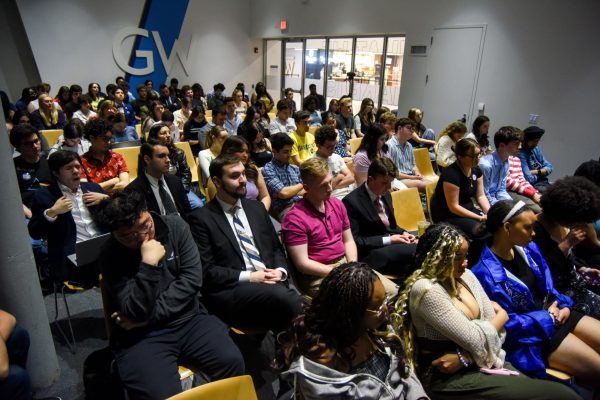
All four candidates emphasized the importance of protecting students’ free speech in the wake of campus protests. Harris said it is not up to the SGA for “speaking out against political genocide and horrible, awful things happening over there.” Harris said if elected she will work to protect free speech and make guidelines for exercising and defending academic freedom clear.
“While I don’t think it’s the SGA’s position to advocate for everything going on in global politics, I know that it’s our job to be available to students, make sure the students rights are protected, also advocate for what does and doesn’t fall into free speech and just be transparent,” Harris said.
Fitzgerald said he wants the SGA president and vice president to have seats on the Board of Trustees and supports the proposed referendum to add voting student members to the Board despite the trustees’ rejection of the initiative to add students in November. Fitzgerald said in order for the SGA to “get things done” and increase transparency between students and the administration on University policies, students need voting power on the Board.
“It is so important because we need students engaged in dialogue more seriously with administration where they have real decision making power,” Fitzgerald said.
Beruashvili, who is currently a member of the executive cabinet, said although he wants to “conduct a thorough search” evaluating the progress and efficiency of the current 60-member executive cabinet, he is unsure if he wants to cut down the size because it would limit available leadership positions on the executive board.
“It is a dilemma between having good progress on initiatives and making an impact but also giving students the ability to be part of a leadership organization and contributing something to their community,” Beruashvili said.


